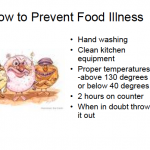A recent undercover survey has revealed that Nigeria’s porous borders and the poor capacity of Nigerian consumers to differentiate between quality and substandard tomatoes paste products are the biggest factors, challenging the success of Nigeria’s indigenous tomato paste industry.
A recent visit to the border town of Seme and Cotonou in Benin Republic revealed that there were huge warehouses heaped with imported tomatoes brands like Super Mum, Leya, Toma, Ginu, Bonjour, Fam Stew and many others. All the 12 warehouses visited eagerly offered to deliver in Nigeria any quantity of any brand chosen within two days if seventy per cent down payment was made. A top distributor in Cotonou, Fedinand Ababio, showed us packed consignments he claimed would be delivered to Nigeria that night.
With Nigeria’s economy dominated by substandard and cheap tomato paste smuggled across the borders, tested local brands like Vitali, Ric-Giko and Sonia are left to fight for the life of their local firms.
Another survey has equally revealed that the yardstick used by most consumers to pick their preferred tomato brand is the level of “thickness” and “redness” of the paste. In a chat with 22 housewives and caterers in three different areas of Lagos, all those who had preferred brands used this erroneous yardstick in making their choice.
Recent findings revealed by National Agency for Food and Drug Administration and Control (NAFDAC) show that there is need for massive consumer education in the area of knowing a tomato paste brand that is healthy to avoid the present trend of self-poisoning that is going on in the country.
NAFDAC officials recently visited 27 main markets and four major supermarkets around Lagos and picked 330 samples of tomato pastes for laboratory analysis. The results for 314 were later released. Out of 314 released, 286 of these tomato pastes, originating from China, representing 91.1 per cent, were found unsatisfactory in terms of tomato content. Only 28 returned satisfactory, even though both satisfactory and unsatisfactory tomato pastes had the same red colour.
The red colour in most of the tomato pastes imported into Nigeria indicates an addition of colorant, which is prohibited, dangerous to health and shows that Chinese companies are merely adding colour, rather than the raw material called concentrates, into tomato pastes imported into Nigeria. These colouring stick to veins, arteries and vital organs and accumulate to cause cancer, hypertension and other diseases.
Another revelation is that the majority of the imported tomato pastes in the country do not contain lycopene, thereby exposing millions of Nigerians to cancer and other deadly diseases.
Lycopene, is a free radical-fighting antioxidants. Free radicals are damaging molecules that float around in the body disrupting cells and promoting disease. Antioxidants, such as lycopene, destroy free radicals so they can’t attach to your cells and wreak havoc on the immune system.
The deception is completed by reducing the content of tomato concentrates and filling up the space with starch to boost thickness.
Nigerian consumers, effectively deceived by these con importers, cannot sustain genuine local producers like, Chief Eric Umeofia, President/ Chief Executive Officer of Erisco Foods ltd. Erisco has a 450,000 metric tonnes per annum capacity plant in Lagos, equipped to steer a tomato paste revolution in the country and end the annual wastage of over 75 percent of fresh tomatoes across Nigeria. The company has promised to create thousands of jobs for Nigerians as long as the Federal Government supports and protects her $150 million plant.
Disturbingly, activities of nefarious tomato paste importers, supported by an ignorant consuming public are almost bringing the local tomatoes industry to its knees.“We have huge stocks of finished products worth billions of naira in our warehouses which we are not selling due to dumping of these dangerous and substandard brands of tomato paste from China that are cheap and filled with starch and colours,” the president of Erisco Foods explains.
“We have the capacity to employ over nine thousand Nigerians in our Lagos factory alone if government protects tomato paste industry,” he further said.
Umeofia also revealed that with about “one thousand containers of tomato coming into Lagos port every week. Nigeria is losing $1billion to tomato paste importers every year.”
The President of Erisco Foods spoke further on the plight local producers of tomato paste: “About two months ago, our tomato plant almost closed down. We couldn’t sell our tomato because of the fake ones in the market. NAFDAC refused to do its work. Luckily, the federal government said no product that can be made in Nigeria will have foreign exchange allocation. That was when our business started to rise like Lazarus. Now, we have recalled all the staff we sent away and are employing more.
“By the time this product saturates the market, Nigerians will realise what we’ve done for them. It is about creating a standard, and letting everyone work based on that. That way, the economy will be better. We want to use our own tomato to develop our economy. We will create jobs. It touches my heart to see graduates applying for casual work here. The day I almost died was the day I signed to retrench people in this company because of lagging sales.”




